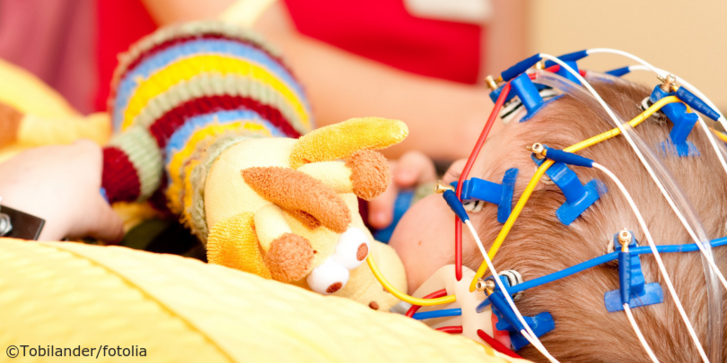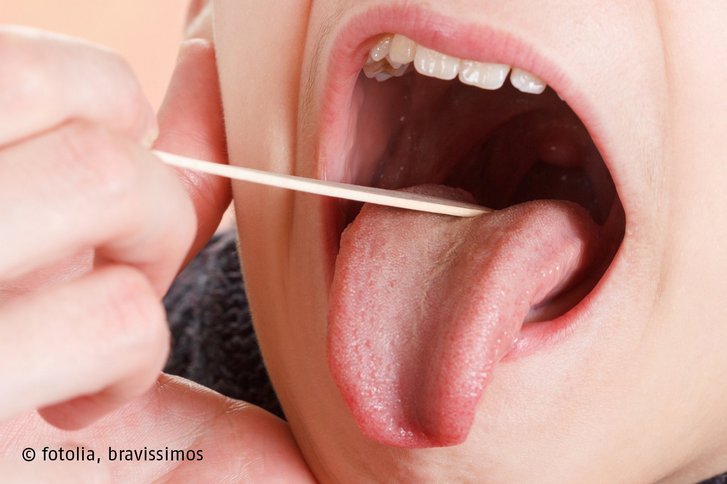
EEG: information for parents
Dear parents, if your child has an EEG (electroencephalogram), this information will help both you and your child to better prepare for the examination.
Preparation and conduct of the examination
First, your child should not have a fever or infection. He should be calm, nourished and in a good mood. Before the examination, you need to go to the toilet. Preparation for the EEG and its implementation takes 1-2 hours. In the evening be sure to wash the child's head, as oily scalp impairs contact with the electrodes. A child can bring his or her favorite teddy bear to stay calm during the procedure. For children, the EEG may seem to be something scary. Tell your child that he or she is getting ready for an unusual adventure, but before that he or she will have to lie down for a while calmly with a special cap on his head. Our years of experience shows that children are much better able to endure the examination if there’s only an assistant in the same room. Thus, the child focuses on the examination and on the assistant, who performs the EEG in a playful way.
Side effects. What to expect?
The child's hair will get a little tangled, that's all. Just like with an ECG, only electrical impulses from the brain are recorded.
If possible, the child will have to lie down with his eyes closed and open and close them again. He will also be asked to take a deep breath for 3-5 minutes, so be sure to practice at home. For example, you can tell him to imagine that he or she blows up a balloon. For a short time, a flashlight will shine in the eyes of the child.
The EEG lasts about 30-60 minutes. It’s also possible to carry out the sleep EEG, during which the electronic impulses are recorded while the child is asleep.
The EEG while the child is awake
The survey takes about one hour. The child must be awake. It’s allowed to have a little snack.
Sleep EEG
Depending on the time the child sleeps, the examination takes from one to two hours. The child must come to the examination tired and full. The EEG records all phases of sleep, including deep sleep, so sleeping isn’t allowed before the examination. The waking time is determined by the age of the child.
Parents are kindly requested to keep the child awake before the examination.
Below you will find an estimate of sleeping and waking times, which should be determined individually based on your child's needs. If your child sleeps for a long time, let it sleep longer, and if it sleeps less than usual, then wake it up a little earlier. In any case, discuss your child's sleeping time with your health care provider.
If your child is too excited or has difficulty sleeping, you can use a special medicine that contains melatonin (sleep hormone) and sleeping pills.
The waking period for infants is 2-3 hours. Be sure to feed the child before the examination.
Morning examination
- If the examination is scheduled for 07:30 and your child isn’t yet 5 years old, wake him up at 04:00.
- If the examination is scheduled for 07:30 and your child isn’t yet 10 years old, wake him up at 00:00.
- If the examination is scheduled for 07:30 and your child is older than 10 years, do not put him to bed.
Examination before noon
- If the examination is scheduled before noon and your child isn’t yet 5 years old, wake him up at 05:00.
- If the examination is scheduled before noon and your child isn’t yet 10 years old, wake him up at 02:00.
- If the examination is scheduled before noon and your child is older than 10 years, put him to bed at a later time and wake him up at 23:00.
Afternoon examination
- If the examination is scheduled for 13:00 and your child still needs an afternoon nap, wake him up in the morning 30 minutes or an hour earlier.
- If the examination is scheduled for 13:00, and your child is over 5 years old and doesn’t need to sleep in the afternoon, wake him up in the morning one hour or two hours earlier than usual.
- If the appointment is at 13:00 and your child is over 10 years old, wake him or her up between 23:00 and 02:00, depending on the needs of your child.






